About Us
Mission
Project Santa Fe Foundation, a 501c3 not-for-profit, is a coalition of laboratory leaders, coming together to create a disruptive value paradigm and explore alternative business models that expand the role of diagnostic services in the future healthcare ecosystem.
Vision
We will leverage laboratory medicine and pathology domain knowledge to establish the standards and evidence for Clinical Lab 2.0. We will facilitate diverse partner collaborations in order guide policies, transfer the knowledge and accelerate the Clinical Lab 2.0 movement across the industry.
Board of Directors
Click image to read each Board Member bio.
Khosrow R. Shotorbani, MBA, MT(ASCP)
BOARD OF DIRECTORS / PRESIDENT, EXECUTIVE DIRECTOR, PSFF; FOUNDER, CEO, LAB 2.0 STRATEGIC SERVICES
Khosrow Shotorbani is the CEO and founder of the Lab 2.0 Strategic Services, LLC. He is a member of Project Santa Fe Clinical Laboratory 2.0 industry advocate. As the former President and Chief Executive Officer at TriCore Reference Laboratories, Mr. Shotorbani oversaw the corporate direction and strategy of TriCore, focusing on leadership and innovation, as well as operations, growth, and the financial health of the company. He led TriCore’s initiatives based on the premise to improve health outcomes and lower costs by utilization of laboratory data.
Mr. Shotorbani was instrumental in the creation of Project Santa Fe—a recently launched initiative with like-minded executives—helping to forge new frontiers that will define future economic valuation and placement of diagnostic services. Before joining TriCore in 2014, Mr. Shotorbani served as Senior Vice President and Director of Business Development/Business Innovations at ARUP. He joined ARUP in 1984 as a medical technologist and while at ARUP advanced to positions with progressive responsibility over his 30-year tenure.
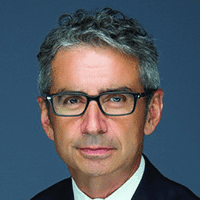
Khosrow R. Shotorbani, MBA, MT(ASCP)
BOARD OF DIRECTORS / PRESIDENT, EXECUTIVE DIRECTOR, PSFF; FOUNDER, CEO, LAB 2.0 STRATEGIC SERVICES
Khosrow Shotorbani is the CEO and founder of the Lab 2.0 Strategic Services, LLC. He is a member of Project Santa Fe Clinical Laboratory 2.0 industry advocate. As the former President and Chief Executive Officer at TriCore Reference Laboratories, Mr. Shotorbani oversaw the corporate direction and strategy of TriCore, focusing on leadership and innovation, as well as operations, growth, and the financial health of the company. He led TriCore’s initiatives based on the premise to improve health outcomes and lower costs by utilization of laboratory data.
Mr. Shotorbani was instrumental in the creation of Project Santa Fe—a recently launched initiative with like-minded executives—helping to forge new frontiers that will define future economic valuation and placement of diagnostic services. Before joining TriCore in 2014, Mr. Shotorbani served as Senior Vice President and Director of Business Development/Business Innovations at ARUP. He joined ARUP in 1984 as a medical technologist and while at ARUP advanced to positions with progressive responsibility over his 30-year tenure.
President, Executive Director
Founder, CEO, Lab 2.0 Strategic Services
James M. Crawford, MD, PhD
BOARD OF DIRECTORS / CHAIR OF THE BOARD, PSFF; EXECUTIVE DIRECTOR AND SENIOR VP LABORATORY SERVICES, NORTHWELL HEALTH
Dr. James Crawford is Chair of the Department of Pathology and Laboratory Medicine, Zucker School of Medicine at Hofstra/Northwell. And Senior Vice President of Laboratory Services for the Northwell Health System.
Jim received his bachelor’s degree from Dartmouth College (1976) and his MD and PhD degrees from Duke University (1982). After interning in Pathology at Duke University medical Center (1982 – 1983), he trained as an Anatomic Pathology resident at Brigham and Woman’s Hospital (1983 – 1987), including a fellowship in Gastrointestinal Pathology and training in 1989 at Royal free Hospital in London as a Liver Pathology Research Fellow.
From 1988 – 1996 he was a faculty member in the Department of Pathology at Brigham and Woman’s Hospital, rising to the rank of the Associate Professor and Directory of the Program in Gastrointestinal Pathology at Yale University School of Medicine. He then moved to the University of Florida College of Medicine in Gainesville, FL, where for 9 years he served as Professor and Chair of the Department of Pathology, Immunology, and Laboratory Medicine. He also served 8 years as President of the Faculty Practice Association and as Chair of the College’s Executive Fiscal Advisory Committee. Dr. Crawford is well known as a Liver Pathologist and for his research in hepatobiliary pathophysiology. He has served as Editor-in-Chief of Laboratory Investigation, Chair of the Council of Academic Societies of the Association of American Medical Colleges (AAMC), President of the Association of Pathology Chairs (APC), and Chair of the Board of Directors of the College of American Pathologists (CAP) “PathPAC” Political Action Committee. He currently is the founding editor of the new APC journal Academic Pathology.
Through both the Association of Pathology Chairs and the College of American Pathologists, DR. Crawford has been heavily involved in advocacy for healthcare. In recent years, he has taken a leading role in advocating for the specialty of Pathology to be part of the next era of “patient-centered” healthcare, particularly with regards to Health Information Technology and the Patient-Centered Medicine Home. That includes being a founding member of Project Santa Fe, which is advancing the concept of Clinical Laboratory 20., as an evidence-based foundation for the value statements of laboratory services in the next era of American health-care.

James M. Crawford, MD, PhD
BOARD OF DIRECTORS / CHAIR OF THE BOARD, PSFF; EXECUTIVE DIRECTOR AND SENIOR VP LABORATORY SERVICES, NORTHWELL HEALTH
Dr. James Crawford is Chair of the Department of Pathology and Laboratory Medicine, Zucker School of Medicine at Hofstra/Northwell. And Senior Vice President of Laboratory Services for the Northwell Health System.
Jim received his bachelor’s degree from Dartmouth College (1976) and his MD and PhD degrees from Duke University (1982). After interning in Pathology at Duke University medical Center (1982 – 1983), he trained as an Anatomic Pathology resident at Brigham and Woman’s Hospital (1983 – 1987), including a fellowship in Gastrointestinal Pathology and training in 1989 at Royal free Hospital in London as a Liver Pathology Research Fellow.
From 1988 – 1996 he was a faculty member in the Department of Pathology at Brigham and Woman’s Hospital, rising to the rank of the Associate Professor and Directory of the Program in Gastrointestinal Pathology at Yale University School of Medicine. He then moved to the University of Florida College of Medicine in Gainesville, FL, where for 9 years he served as Professor and Chair of the Department of Pathology, Immunology, and Laboratory Medicine. He also served 8 years as President of the Faculty Practice Association and as Chair of the College’s Executive Fiscal Advisory Committee. Dr. Crawford is well known as a Liver Pathologist and for his research in hepatobiliary pathophysiology. He has served as Editor-in-Chief of Laboratory Investigation, Chair of the Council of Academic Societies of the Association of American Medical Colleges (AAMC), President of the Association of Pathology Chairs (APC), and Chair of the Board of Directors of the College of American Pathologists (CAP) “PathPAC” Political Action Committee. He currently is the founding editor of the new APC journal Academic Pathology.
Through both the Association of Pathology Chairs and the College of American Pathologists, DR. Crawford has been heavily involved in advocacy for healthcare. In recent years, he has taken a leading role in advocating for the specialty of Pathology to be part of the next era of “patient-centered” healthcare, particularly with regards to Health Information Technology and the Patient-Centered Medicine Home. That includes being a founding member of Project Santa Fe, which is advancing the concept of Clinical Laboratory 20., as an evidence-based foundation for the value statements of laboratory services in the next era of American health-care.
Chair Of The Board
Professor and Chair Emeritus, Department of Pathology and Laboratory Medicine, Northwell Health
Myra L. Wilkerson, MD
BOARD OF DIRECTORS / CHAIR, DIVISION OF LABORATORY MEDICINE, GEISINGER HEALTH SYSTEM
Myra Wilkerson is Chair, Laboratory Medicine Service Line for Geisinger. Dr. Wilkerson is responsible for oversight of all clinical and anatomic pathology laboratory services within the health system.
She joined the Geisinger team in 1999 and has helped several medical directorships over Geisinger hospital laboratories as week as the vice chair for the service line. Her subspecialty areas are cytopathology, genitourinary pathology, and laboratory informatics. Her current research interests include tissue microarrays and immunochemistry of the testicular and bladder tumors. Dr. Wilkerson recently edited and contributed four chapters to a book published by the Geisinger anatomic pathology group, the Handbook of Practical Immunohistochemistry: Frequently Asked Questions. She s one of the web authors for the companion wed site to this book, www.ihcfaq.com.
Dr Wilkerson is a part president of the Association of the Clinical Scientists and a past president of the Association for Pathology Informatics. She also currently serves on the Informatics Committee and the Clinical Informatics Steering Committee for the College of American Pathologist’s. She is on the editorial boards of three peer reviewed journals, the Annals of Clinical and Laboratory Science, the Archives of Pathology and Laboratory Medicine and the Journal of Pathology Informatics. Dr. Wilkerson received her undergraduate degree in Medical Technology from Marshall University, and then worked in the clinical laboratories at Charleston Area Medical Center before retuning to Marshall University to earn a Doctor of Medicine. She completed a combined anatomic and clinical pathology residency and cytopathology specialty training in the PennState Geisinger Health System.
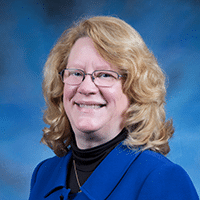
Myra L. Wilkerson, MD
BOARD OF DIRECTORS / CHAIR, DIVISION OF LABORATORY MEDICINE, GEISINGER HEALTH SYSTEM
Myra Wilkerson is Chair, Laboratory Medicine Service Line for Geisinger. Dr. Wilkerson is responsible for oversight of all clinical and anatomic pathology laboratory services within the health system.
She joined the Geisinger team in 1999 and has helped several medical directorships over Geisinger hospital laboratories as week as the vice chair for the service line. Her subspecialty areas are cytopathology, genitourinary pathology, and laboratory informatics. Her current research interests include tissue microarrays and immunochemistry of the testicular and bladder tumors. Dr. Wilkerson recently edited and contributed four chapters to a book published by the Geisinger anatomic pathology group, the Handbook of Practical Immunohistochemistry: Frequently Asked Questions. She s one of the web authors for the companion wed site to this book, www.ihcfaq.com.
Dr Wilkerson is a part president of the Association of the Clinical Scientists and a past president of the Association for Pathology Informatics. She also currently serves on the Informatics Committee and the Clinical Informatics Steering Committee for the College of American Pathologist’s. She is on the editorial boards of three peer reviewed journals, the Annals of Clinical and Laboratory Science, the Archives of Pathology and Laboratory Medicine and the Journal of Pathology Informatics. Dr. Wilkerson received her undergraduate degree in Medical Technology from Marshall University, and then worked in the clinical laboratories at Charleston Area Medical Center before retuning to Marshall University to earn a Doctor of Medicine. She completed a combined anatomic and clinical pathology residency and cytopathology specialty training in the PennState Geisinger Health System.
Board Treasurer
Division of Laboratory Medicine, Geisinger Health System
Mark K. Fung, MD, PhD
PROFESSOR AND VICE CHAIR POPULATION HEALTH, DEPARTMENT OF PATHOLOGY AND LABORATORY MEDICINE, THE ROBERT LARNER MD COLLEGE OF MEDICINE, UNIVERSITY OF VERMONT
Dr. Mark Fung is Professor and Vice Chair of Population Health in the Department of Pathology and Laboratory Medicine at the University of Vermont (UVM). He was previously the Director of Clinical Laboratories and Vice Chair of Quality and Clinical Affairs for the Department at UVM. Prior to that, he was President of the medical staff at UVM Medical Center and Director of the Blood Bank. In addition to directing the HLA and stem cell processing laboratories, he currently serves on the board of directors for the UVM health network’s medical practice group, and co-chairs the lab sub-committee for Vermont’s ACO, OneCare Vermont.
Outside of UVM, Dr. Fung has been active nationally and internationally in promoting the use of evidence-based transfusion guidelines and the centralized reporting of transfusion service-related adverse events and errors to patient safety organizations. He completed his training in biology at Wesleyan University and medical scientist training in pathology at the University of Alabama at Birmingham. He completed his residency in pathology at Barnes Jewish Hospital and the University of Pittsburgh Medical Center, with a fellowship in transfusion medicine at the Institute for Transfusion Medicine in Pittsburgh. Dr. Fung has been at UVM since 2004.
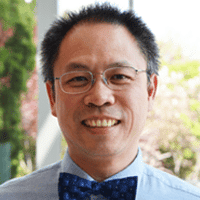
Mark K. Fung, MD, PhD
PROFESSOR AND VICE CHAIR POPULATION HEALTH, DEPARTMENT OF PATHOLOGY AND LABORATORY MEDICINE, THE ROBERT LARNER MD COLLEGE OF MEDICINE, UNIVERSITY OF VERMONT
Dr. Mark Fung is Professor and Vice Chair of Population Health in the Department of Pathology and Laboratory Medicine at the University of Vermont (UVM). He was previously the Director of Clinical Laboratories and Vice Chair of Quality and Clinical Affairs for the Department at UVM. Prior to that, he was President of the medical staff at UVM Medical Center and Director of the Blood Bank. In addition to directing the HLA and stem cell processing laboratories, he currently serves on the board of directors for the UVM health network’s medical practice group, and co-chairs the lab sub-committee for Vermont’s ACO, OneCare Vermont.
Outside of UVM, Dr. Fung has been active nationally and internationally in promoting the use of evidence-based transfusion guidelines and the centralized reporting of transfusion service-related adverse events and errors to patient safety organizations. He completed his training in biology at Wesleyan University and medical scientist training in pathology at the University of Alabama at Birmingham. He completed his residency in pathology at Barnes Jewish Hospital and the University of Pittsburgh Medical Center, with a fellowship in transfusion medicine at the Institute for Transfusion Medicine in Pittsburgh. Dr. Fung has been at UVM since 2004.
Professor and Vice Chair Population Health, Department of Pathology and Laboratory Medicine, The Robert Larner MD College of Medicine, University of Vermont
Karen L. Kaul, MD, PhD
BOARD OF DIRECTORS / DUCKWORTH FAMILY CHAIR OF MOLECULAR PATHOLOGY, CHAIR PATHOLOGY AND LABORATORY MEDICINE, NORTHSHORE UNIVERSITY HEALTHSYSTEM; CLINICAL PROFESSOR OF PATHOLOGY, UNIVERSITY OF CHICAGO PRITZKER SCHOOL OF MEDICINE
Dr. Karen L. Kaul is Chair of the Department of Pathology and Laboratory Medicine at NorthShore and is a Clinical Professor of Pathology at the University of Chicago’s Pritzker School of Medicine. She previously served as Director of the Molecular Diagnostics Division at NorthShore University HealthSystem. Board-certified in anatomic pathology, and molecular genetic pathology, she has been deeply involved in the development of laboratory tests for cancer, heritable, and microbial diseases.
Dr. Kaul is a past President of the Association for Molecular Pathology and served as Editor-in-Chief of the Journal of Molecular Diagnostics. She has led efforts to expand molecular pathology and personalized medicine programs at NorthShore, serving as Interim Co-Director of the Personalized Medicine Program, and expanding the tissue and genomic biorepository. She has over 100 peer-reviewed publications and recently co-edited the book Genomics in Cancer.
Dr. Kaul is the recipient of the 2008 Association for Molecular Pathology Leadership Award. She is Past President of the American Board of Pathology and serves on the ACGME Residency Review Committee for Pathology. She was an Executive Leadership in Academic Medicine fellow in 2011-2012 and served as a member of the Tapestry/SPOT Dx working group. In late 2016, she provided testimony to the bipartisan Senate Health Education Labor and Pension Committee on the contributions of lab-developed tests and procedures to personalized medicine. She’s a Board member for Laboratory 2.0 and is involved in efforts to transform the laboratory through better integration and utilization.
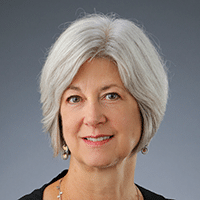
Karen L. Kaul, MD, PhD
BOARD OF DIRECTORS / DUCKWORTH FAMILY CHAIR OF MOLECULAR PATHOLOGY, CHAIR PATHOLOGY AND LABORATORY MEDICINE, NORTHSHORE UNIVERSITY HEALTHSYSTEM; CLINICAL PROFESSOR OF PATHOLOGY, UNIVERSITY OF CHICAGO PRITZKER SCHOOL OF MEDICINE
Dr. Karen L. Kaul is Chair of the Department of Pathology and Laboratory Medicine at NorthShore and is a Clinical Professor of Pathology at the University of Chicago’s Pritzker School of Medicine. She previously served as Director of the Molecular Diagnostics Division at NorthShore University HealthSystem. Board-certified in anatomic pathology, and molecular genetic pathology, she has been deeply involved in the development of laboratory tests for cancer, heritable, and microbial diseases.
Dr. Kaul is a past President of the Association for Molecular Pathology and served as Editor-in-Chief of the Journal of Molecular Diagnostics. She has led efforts to expand molecular pathology and personalized medicine programs at NorthShore, serving as Interim Co-Director of the Personalized Medicine Program, and expanding the tissue and genomic biorepository. She has over 100 peer-reviewed publications and recently co-edited the book Genomics in Cancer.
Dr. Kaul is the recipient of the 2008 Association for Molecular Pathology Leadership Award. She is Past President of the American Board of Pathology and serves on the ACGME Residency Review Committee for Pathology. She was an Executive Leadership in Academic Medicine fellow in 2011-2012 and served as a member of the Tapestry/SPOT Dx working group. In late 2016, she provided testimony to the bipartisan Senate Health Education Labor and Pension Committee on the contributions of lab-developed tests and procedures to personalized medicine. She’s a Board member for Laboratory 2.0 and is involved in efforts to transform the laboratory through better integration and utilization.
Duckworth Family Chair of Molecular Pathology, Chair Pathology and Laboratory Medicine, Northshore University Healthsystem; Clinical Professor of Pathology, University of Chicago Pritzker School of Medicine
Nancy Stratton, MBA
CEO COLA, Inc.
Nancy Stratton joined COLA as its first Chief Executive Officer in the Company’s history to have worked as a medical laboratory technologist early in her career. Nancy has a deep love of the profession and a lived-through understanding of the importance of accurate laboratory results to the diagnosis and treatment of patients. With her commitment to expand our mission to serve more laboratories, COLA received approval to accredit laboratories performing tests in the specialty of pathology, including the subspecialties of histopathology, oral pathology and cytology.
COLA continues to benefit from Nancy’s prior experience as the CEO of a clinical pathology laboratory division of one of the largest diagnostic laboratory medicine companies in the world. Before moving into the CEO position for the division, Nancy held various management positions in which she guided her team to new levels of excellence in quality management, customer service, human resources, risk management, and regulatory and medical legal compliance.
In addition to having extensive experience in all aspects of laboratory operations, Nancy is highly regarded in the industry for her commitment to high-quality patient care, her collaborative leadership style, and her ability to cultivate meaningful relationships with employees, physicians, hospitals and community partners. While Nancy relocated from Texas to join the team at COLA, she did bring a little of Texas with her. Nancy and her husband live on their horse farm in Maryland where they spend quality time with their family

Nancy Stratton, MBA
CEO COLA, Inc.
Nancy Stratton joined COLA as its first Chief Executive Officer in the Company’s history to have worked as a medical laboratory technologist early in her career. Nancy has a deep love of the profession and a lived-through understanding of the importance of accurate laboratory results to the diagnosis and treatment of patients. With her commitment to expand our mission to serve more laboratories, COLA received approval to accredit laboratories performing tests in the specialty of pathology, including the subspecialties of histopathology, oral pathology and cytology.
COLA continues to benefit from Nancy’s prior experience as the CEO of a clinical pathology laboratory division of one of the largest diagnostic laboratory medicine companies in the world. Before moving into the CEO position for the division, Nancy held various management positions in which she guided her team to new levels of excellence in quality management, customer service, human resources, risk management, and regulatory and medical legal compliance.
In addition to having extensive experience in all aspects of laboratory operations, Nancy is highly regarded in the industry for her commitment to high-quality patient care, her collaborative leadership style, and her ability to cultivate meaningful relationships with employees, physicians, hospitals and community partners. While Nancy relocated from Texas to join the team at COLA, she did bring a little of Texas with her. Nancy and her husband live on their horse farm in Maryland where they spend quality time with their family
CEO of COLA Inc.
Richard J. Zarbo, MD, DMD
BOARD OF DIRECTORS / SENIOR VP AND CHAIR, PATHOLOGY AND LABORATORY MEDICINE, HENRY FORD HEALTH SYSTEM
Richard Zarbo, MD, DMD is the system chairman and KD Ward Chair of Pathology and Laboratory Medicine in the Henry Ford Health System and past-president of the United States and Canadian Academy of Pathology. He is a board-certified anatomic and clinical pathologist and an expert in head and neck pathology, laboratory quality and continuous process improvement. Dr. Zarbo is an early pioneer in laboratory quality. His initial foray in quality goes back to the 1990’s when he was instrumental in defining national benchmarks of laboratory quality through the CAP Q-Probes and Q-tracks programs. Since the early 2000’s he has endeavored to create a culture of continuous improvements throughout the Henry Ford laboratories that he integrated into System-wide Product Line.
The Henry Ford continuous improvement culture is based on s synthesis if Henry Ford’s automotive manufacturing focus on waste reduction and efficiency, the management approach of W. Edwards Deming and the Lean principles and human development of the Toyota Production System. The successful Henry Ford Production System, now in the 12th year in the Henry Ford Laboratories, is featured in Dr. Jeffrey liker’s booked – The Toyota way to Continuous Improvement: Linking Strategy and Operational Excellence to Achieve Superior Performance (2011) and The Toyota Way to Service Excellence Lean Transformation in Service Organizations (2016). The Henry Ford laboratories obtained ISO 15189 accreditation in 2013 as the largest ISO 1589 accredited integrated, multi-setting medical laboratory system in the US. Dr. Zarbo’s curriculum vitae includes over 200 peer-reviewed publications with over 50 directly related to laboratory quality. He is a clinical professor of Pathology at Wayne State University School of Medicine.
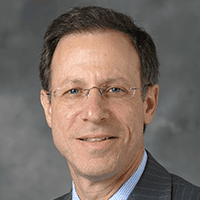
Richard J. Zarbo, MD, DMD
BOARD OF DIRECTORS / SENIOR VP AND CHAIR, PATHOLOGY AND LABORATORY MEDICINE, HENRY FORD HEALTH SYSTEM
Richard Zarbo, MD, DMD is the system chairman and KD Ward Chair of Pathology and Laboratory Medicine in the Henry Ford Health System and past-president of the United States and Canadian Academy of Pathology. He is a board-certified anatomic and clinical pathologist and an expert in head and neck pathology, laboratory quality and continuous process improvement. Dr. Zarbo is an early pioneer in laboratory quality. His initial foray in quality goes back to the 1990’s when he was instrumental in defining national benchmarks of laboratory quality through the CAP Q-Probes and Q-tracks programs. Since the early 2000’s he has endeavored to create a culture of continuous improvements throughout the Henry Ford laboratories that he integrated into System-wide Product Line.
The Henry Ford continuous improvement culture is based on s synthesis if Henry Ford’s automotive manufacturing focus on waste reduction and efficiency, the management approach of W. Edwards Deming and the Lean principles and human development of the Toyota Production System. The successful Henry Ford Production System, now in the 12th year in the Henry Ford Laboratories, is featured in Dr. Jeffrey liker’s booked – The Toyota way to Continuous Improvement: Linking Strategy and Operational Excellence to Achieve Superior Performance (2011) and The Toyota Way to Service Excellence Lean Transformation in Service Organizations (2016). The Henry Ford laboratories obtained ISO 15189 accreditation in 2013 as the largest ISO 1589 accredited integrated, multi-setting medical laboratory system in the US. Dr. Zarbo’s curriculum vitae includes over 200 peer-reviewed publications with over 50 directly related to laboratory quality. He is a clinical professor of Pathology at Wayne State University School of Medicine.
Senior VP and Chair, Pathology and Laboratory Medicine, Henry Ford Health System
